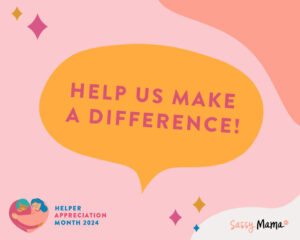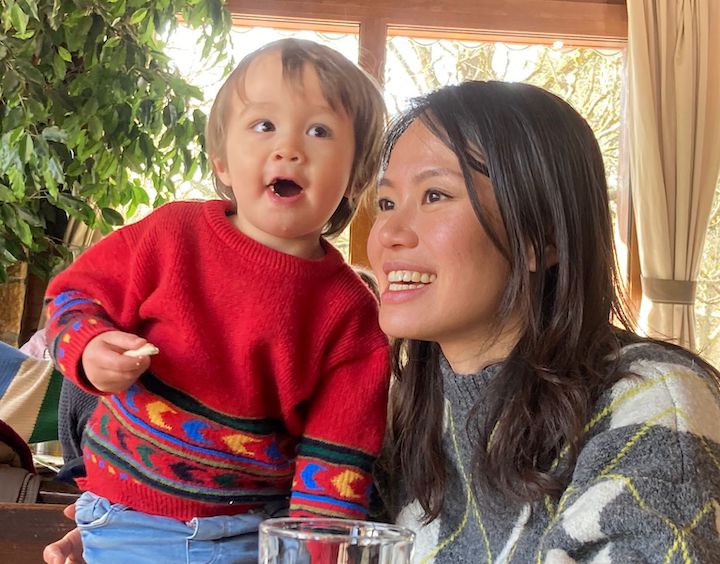
“I personally feel very Singaporean. I wonder if the difference in our cultural upbringing would impact our relationship in the future.”
Singaporean actor Esther Low (you might know her for her role as The Blue Princess in Netflix’s Marco Polo) chats to us in this latest Overseas Mama series. Esther Low who is married to a Swiss, talks about life in Geneva, Switzerland where she has chosen to be a stay-at-home mum to her son, believing that the first 3 years of a child’s life builds an important foundation for them. While she says Geneva can feel a little soulless for a creative arts person, “even in comparison to Singapore”, Esther shares the many plus points from the weather and nature to Switzerland’s total defence strategy “Every Swiss household has a bunker well-stocked with canned and dried food.” Esther says that parenting is not seen as a competition in Geneva though she worries that if she were to return to Singapore her son may struggle to adapt to local school “I would have to teach him how to fit in without having to change his individuality. I would teach him how to follow the rules but also know when to push boundaries without going too far.” Read on for Esther Low’s full interview!
Click here to read about other Overseas Singaporean mamas!
Can you tell us a little about yourself?
My name is Esther, I am 35 years old, a full-time stay-at-home mum (SAHM) to a two-year-old boy, married to a Swiss. I used to be an actress, musician, and vocal coach back in Singapore and the Netherlands. I’ve decided to put a temporary hold on my career for love and family.
What brought you to Geneva, Switzerland? How long have you been living overseas?
When I gave birth to my son in Amsterdam in the Netherlands, we didn’t have family with us and we thought that it was important to raise our son in a loving environment with family close by. So our goal was to eventually find our way to Geneva where my husband’s family is.
The universe heard our thoughts and a company in Geneva offered my husband, Michael, a job two months after my son was born. We’ve been living in Geneva for almost two years now. Prior to that, we were living in Amsterdam for slightly over four years. So I’ve been living outside of Singapore for almost six years in total!
Favourite aspect about living in Geneva?
So much nature everywhere!! And lovely weather for most of the year. Spring and autumn are absolutely gorgeous and very comfortable while winter is not too cold and brutal like how it can be in some other European cities. Geneva is also very family-friendly, with lots of parks everywhere.
Also, compared to other European countries, Switzerland really has its total defence strategy down pat. When Russia first invaded Ukraine, there was a lot of tension in Europe and talks of Russia going nuclear. That’s when I found out that in the 1960s, Switzerland made it mandatory for all large houses and residential buildings to be equipped with nuclear bunkers. Today, almost every Swiss household has a bunker well-stocked with canned and dried food.
With the sanctions on Russian oil, countries like the Netherlands and Germany that are very reliant on oil for energy saw energy prices shoot through the roof – an average family living there could pay €1000 or more for monthly utilities. I found out that the Swiss didn’t put their eggs in one basket and relied completely on oil but also had other sources like gas and solar energy. So in an event like this, the average Swiss didn’t have to suffer from skyrocketing oil prices. There is a lot of peace of mind living in Geneva due to very well thought-out political and economic decisions.
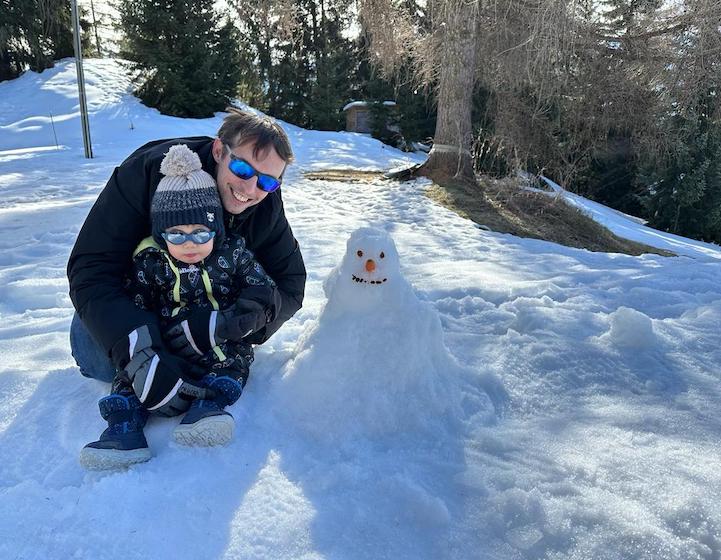
And the worst part?
Geneva can feel a little soulless in comparison to Amsterdam and even Singapore. In the other cities I’ve lived in, people have a lot of passion and heart for different things while many Genevois can be quite cold and pragmatic. There are not as many art or cultural activities like in Amsterdam and Singapore so Geneva can feel very boring and slow for someone like me who used to be so heavily involved in the arts. Even the most “happening” parts of town feel quiet and reserved on weekend nights. In Amsterdam, you have lights, music, and loud talking on every corner. Also, everything is closed on Sundays, including supermarkets.
How do you think parenting in Geneva differs from parenting in Singapore? What do you appreciate most about it?
No focus at all on academics especially in a child’s early years! Whoop whoop! There is a lot more focus placed on letting a child explore and have fun in the great outdoors. There’s absolutely no pressure on children having to do homework or anything along those lines before a certain age. Even amongst fellow parents, you don’t really hear people talk about sending their kids for enrichment classes, etc. Parents are so much more chill here. As long as their children are happy and taken care of, it’s enough. Parenting is not seen as a competition here as it can so often feel like in Singapore.
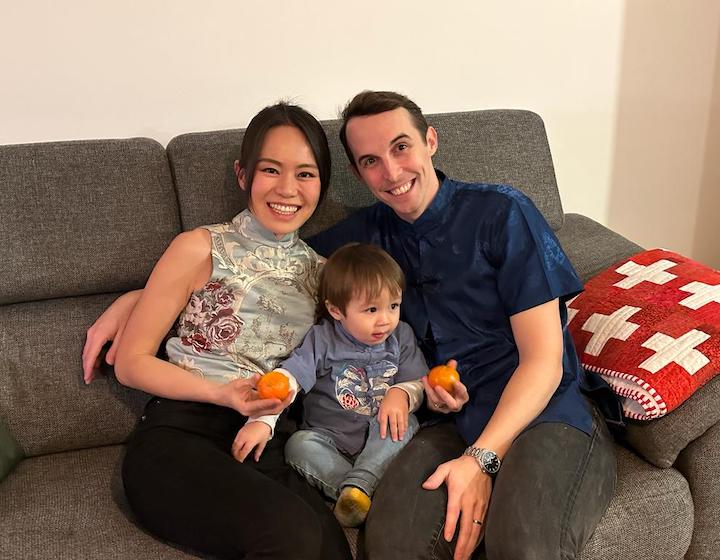
Did you give birth to your child in Geneva? If yes, what was memorable about the experience?
I gave birth in Amsterdam, and hell yeah it was memorable. First, the Dutch believe in natural birth for all women. If you can do it without any clinical intervention at all, even epidural, that’s the best. Secondly, Dutch women are Vikings. They give birth and go home the very same day. Some women even cycle to the hospital when they are about to give birth.
So yes, I gave birth the Dutch way. I pushed out a 4.2-kg baby naturally in 25 hours. I did not have an epidural for half that time, and it became too unbearable. I screamed for epidural and thankfully there was an anaesthetist around to administer it (not always the case since most women gave birth without epidural).
After Xander was out, I almost fainted due to severe blood loss. I wasn’t able to hear what my husband was saying and he was starting to look pixelated. Thankfully he acted quickly and made me guzzle down some energy drinks. Despite all that, we went home just five hours after giving birth. There are usually no elevators in traditional apartment buildings in Amsterdam so I had to climb up four flights of stairs with my freshly-stitched up vagina, a numb left leg (too much epidural), and a newborn. It took me two whole months to stop bleeding and fully recover from the labour.
Can you talk us through your career pre- and post-baby?
I used to be an actress, musician, and vocal instructor in Singapore. I was in a bunch of local TV shows, and my most notable acting gig was playing the role of Blue Princess in Marco Polo. Aside from that, I was a vocal instructor in Thunder Rock School, and I also sang and played in a couple of bands.
After moving to Amsterdam, I set up my own vocal studio, Heart & Soul Singing, and focused fully on vocal coaching with a bit of part-time acting. Now in Geneva, I’ve decided to put a pause on my career to take care of my son full-time. I personally believe the first three years of a child’s life is the most crucial window to set up a solid foundation for the rest of his life so I want to be fully present to help him build this foundation.
Favourite kid-friendly restaurant in Geneva?
While Geneva has many kid-friendly places like parks and indoor playgrounds, surprisingly there are not a lot of kid-friendly restaurants. A restaurant might be kid-friendly but the food is abysmal. Or the food is amazing but you can’t wheel a stroller in. I can think of one kid-friendly cafe that I like though – Pages & Sips.
Top five places in or around Geneva you would recommend to parents travelling with kids.
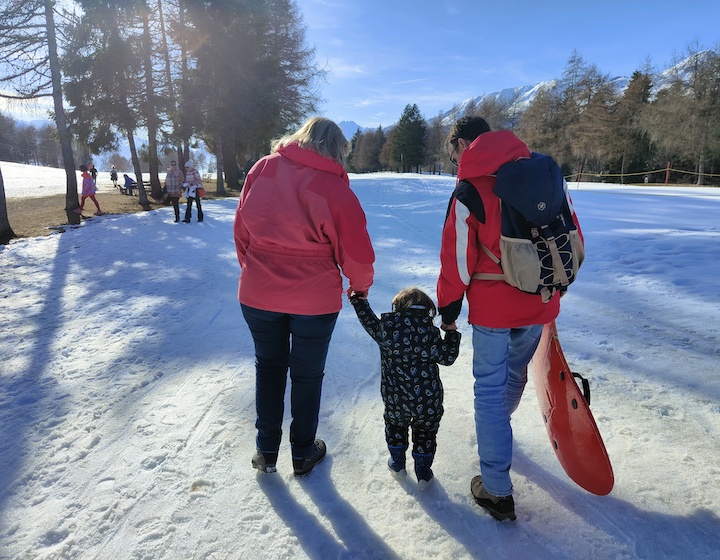
Maison de la créativité – A huge three-storey house with eight rooms with different themes to encourage children from two to eight years old to play in different ways, Montessori style. For example, there is a room with nothing but stones and pebbles for children to feel the textures and be creative with how they play with stones. There is a room where children can paint freely on paper and walls. There is also another room designed to look like a boat out at sea where children can pretend to be sailors and let their imagination run free. The best part is the outdoor area which overlooks a gorgeous landscape of trees and mountains. There, the children can play in a “mud kitchen” where pots and pans are provided for kids to pretend to cook with mud.
Baby-Plage – At this little beach at Lac Léman, there are swings hanging from trees. My son enjoys playing with the sand and throwing pebbles into the lake. Kids probably would have the most fun feeding the ducks and swans that roam around freely. In the summer, you can swim in the lake and also have an ice cream break. It’s a very simple and relaxing yet fun way to spend the afternoon.
Sauvabelin Park – I highly recommend this place for nature-loving families visiting Lausanne, about an hour’s drive from Geneva. It is a very tranquil and beautiful park with some animals for children to look at and learn more about. It’s a beautiful place to walk around and explore. There’s also a nice playground for children to play at before or after you are done exploring the park.
Aquatis – A huge aquarium and vivarium in Lausanne that is quite nicely designed with many species of marine life, reptiles, and other cold-blooded animals. We really enjoyed our visit there. I don’t know if S.E.A. Aquarium is better because I’ve never been.
Crans-Montana – You have to visit the mountains if you come to Switzerland. Crans-Montana is one of the most kid-friendly mountain towns. If you visit in winter, there is an entire ski station that has activities and slope difficulty levels dedicated to kids. Many kids as young as two years old go to Crans-Montana for ski lessons as they have many ski instructors for children. If you go in summer, there are many adventure parks and fun hiking trails to explore as well.
Is there something that you do to keep your child in touch with his Singaporean roots?
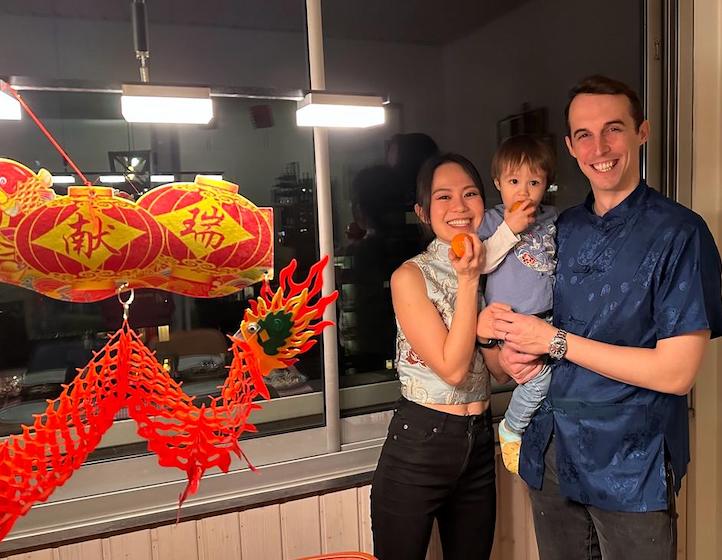
I speak to him in Singlish as Singlish is such an intrinsic part of Singapore’s culture. While it’s very likely that he will grow up speaking neutral English and French, I hope that he will at least be able to know the beautiful sounds of Singlish, recognise it anywhere he goes, and relate to it somehow every time we visit Singapore.
We’ve also been making efforts to celebrate Chinese New Year, complete with all the traditions we typically would have back home in Singapore such as reunion dinner, ang pows, and blasting cheesy Chinese New Year songs from the speakers. It’s great that we have a big group of Singaporean friends here as well so we usually invite them over too. At some point, I’ll teach my son how to play mahjong. In fact, we’ve already let him touch and mess around with the tiles. Mahjong is life!!
Best souvenir one could bring back from Geneva
– for a child:
CHOCOLATE. Tonnes and tonnes of rich, delicious, buttery chocolate. Especially during Easter, you can find chocolate bunnies on sale everywhere. Kids in Singapore would definitely find these cute chocolate bunnies pretty cool.
– for a mama friend:
A beautiful cutting board with the Swiss Alps engraved on it!
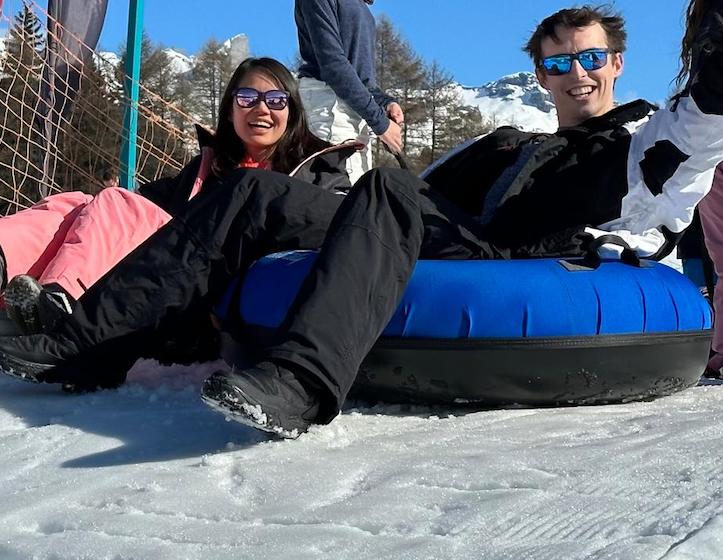
What do you find is the hardest part of being a mother living in a foreign country?
A part of me is aware of how language can potentially be a barrier between me and my son one day. French is the predominant language spoken in Geneva. When he starts going to school, everything will be conducted in French. In the near future, I know he will be coming home and saying phrases that I won’t understand. At the moment, I’m scrambling to learn as much French as my tired brain could possibly manage because I don’t want to be unable to understand what my son is trying to tell me.
Sometimes I also find it pretty surreal that my son will not be growing up as a Singaporean boy. I personally feel very Singaporean. But my son will not have that same type of Singaporeanness in his blood. He will be Genevois – with a Genevois mindset, immersed in Genevois culture and way of life. I wonder if the difference in our cultural upbringing would impact our relationship in the future.
On raising multilingual children …
It takes so much discipline. I try to speak to my son in Mandarin every other day. But my Mandarin isn’t as strong as my English. I’m trying to keep at it and my brain definitely hurts if I speak Mandarin for one full morning. It also feels super unnatural to be speaking to him in Mandarin as well. I feel like I’m acting in a Channel 8 show with him.
As for my husband, the current plan is for him to speak to Xander in French on weekends. If my brain already hurts from speaking Mandarin, it will for sure start to disintegrate on weekends when I try just to grasp the general idea of what my husband is saying to my son. In the beginning, it did feel a little alienating but I’m slowly getting better. After all, they say that learning languages sharpens a certain part of your brain!
What do you always bring back from Singapore for yourself and for your child?
PINEAPPLE TARTS. And lots of stuff from my mum because she’ll buy so many things and force me to bring them back. All the different brands of sauces that Geneva doesn’t have!
Tell us about your go-to recipe for your family.
Oh gosh, I’m not much of a cook. So I would say pasta with vegetables and tomato sauce. Yup, poor Esther’s family.
What’s the one thing you would miss about Geneva if you moved away?
Being close to my in-laws. We’ve all built a very strong bond as a family since we moved to Geneva, and my son now has a very close relationship with his grandparents. It is very important to me that my son is surrounded by family who loves him and grows up understanding the importance of strong family bonds. It hurts me to think that we would lose that regular contact if we were to leave Geneva.
What is the first thing you do each time you come back to Singapore?
Go to Itacho Sushi at the airport for a meal with my best friends, Cindy Yong and Felicia Tan, who are always there to pick me up.
What do you dread most if you are moving back to Singapore?
I’m quite a free-spirited person who enjoys the freedom of doing what I want without too many restrictions. So I think I would struggle to go back to dealing with how rigid Singapore can be with certain things. I struggle to follow rules that don’t make sense to me and it bothers me when I’m expected to follow rules just because everyone else is doing it. The worst part is you have no say because speaking up is not a norm in Singapore.
I also fear being judged for doing things differently. When I brought my son back to Singapore for the first time when he was nine months old, I let him crawl around freely in the grass at the Botanic Gardens. People were staring at us for letting our baby crawl in “dirty and disgusting” mud. But our belief is to allow our child to be comfortable with nature, to feel the soft grass and crunchy twigs under his hands and knees when he crawls around, and not to be scared of dirt. I think we will be judged a lot for sticking to our beliefs and raising our child the way we want in Singapore.
Thoughts on your child moving back and joining Singapore’s education system?
I will likely put him in an international school because I don’t want him to be in Singapore’s education system. So far, I’ve been raising him with a lot of freedom and independence of thought. If I were to put him in a public school in Singapore, I think he might struggle to adapt. If I have no choice, I suppose I would have to teach him how to fit in without having to change his individuality. I would teach him how to follow the rules but also know when to push boundaries without going too far. It will be an interesting challenge.
How do you think Singaporeans can benefit from living overseas?
Anyone who ventures out and experiences a foreign lifestyle and culture will definitely open their mind and see their perspectives evolve. The Singapore government is a nanny state that looks after its citizens incredibly well. So in a sense, the majority of Singaporeans live in a bubble. When you move out and live somewhere else, this bubble will no doubt be popped. Personally I find it extremely liberating to be out of the bubble, experiencing life differently and learning to be more independent in certain things.
It has been empowering for me to grow in a different culture, seeing the world from a different lens. It’s also refreshing to get to know people who see you differently, therefore allowing you to evolve into someone that may actually be truer to who you’ve always wanted to be. I think that sometimes when you are surrounded by the same people for decades, they tend to always see you as the person they first got to know 20 years ago, like as a university student or a struggling musician. And when you have always been perceived as the struggling university student, it is very hard to grow out of that label people have unconsciously put on you. Living abroad in a different environment can help you to grow out of that and to start seeing yourself in a different light.
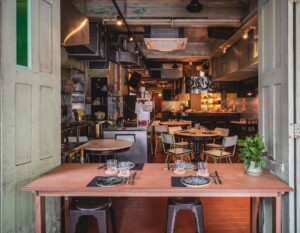
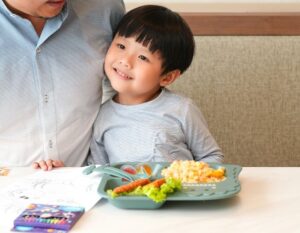
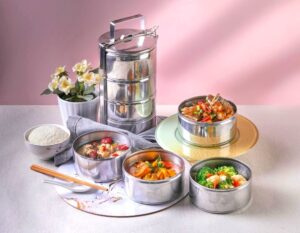



 View All
View All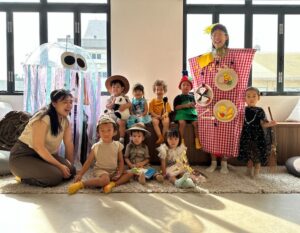
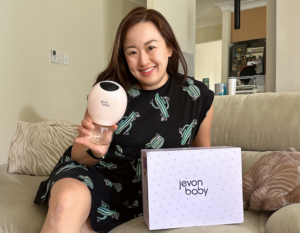

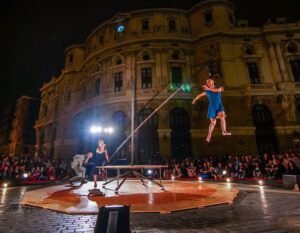
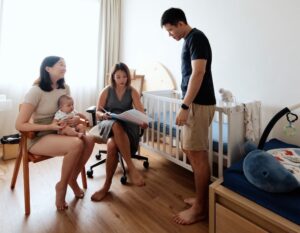
 View All
View All


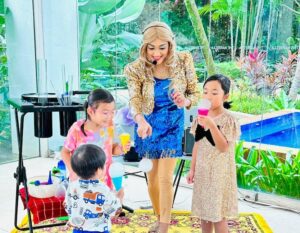


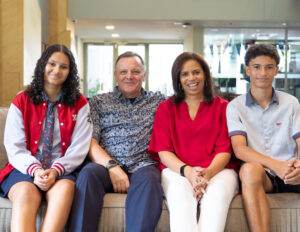


 View All
View All


